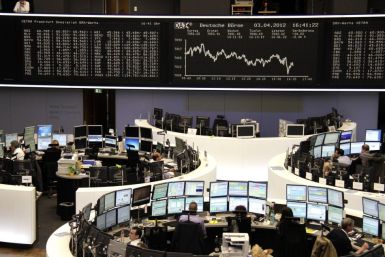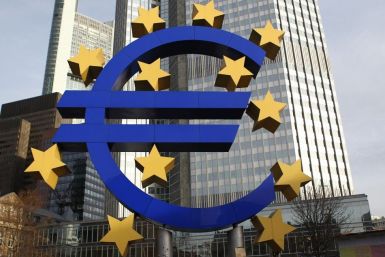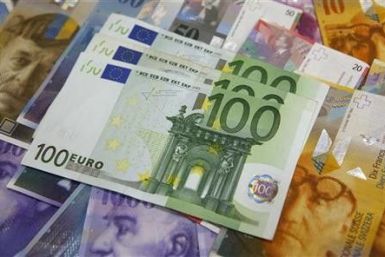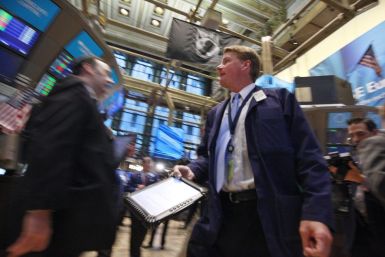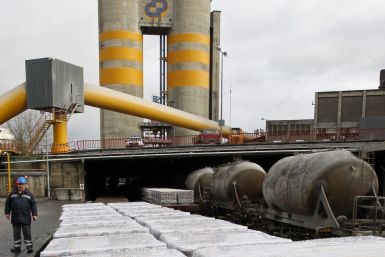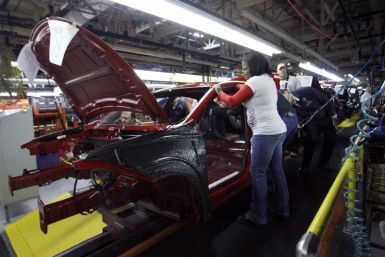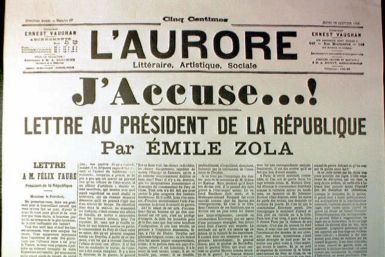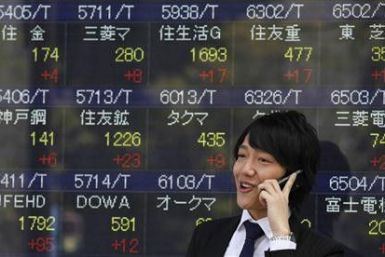Investors re-adjusted their value calculations for risky assets on Tuesday, selling off stocks, bonds and all manner of commodity futures after the Federal Reserve released minutes from the most recent meeting of its rate-setting committee. The minutes strongly suggested that the U.S. central bank was backing away from the possibility of further monetary easing in the short-run, including any kind of quantitative easing.
Ongoing fiscal troubles in the 17-state currency area have cut share prices of numerous European companies, making them attractive to suitors from abroad.
Steep depreciation of the Japanese currency is likely before long, the Shanghai-based economist predicts. “A financial bubble doesn't burst slowly. When it occurs, it just pops.
U.S. sales of autos surged in March as consumers decided to replace aging gas-guzzlers and take advantage of low interest rates, especially to buy fuel-efficient vehicles.
The world's most populous country now has more than one billion cell phones. Over the past two years, China has added 200 million mobiles.
One of London's most prominent bankers was fined 450,000 pounds ($720,000) for passing on inside information in a case that will embarrass his employer J.P. Morgan Cazenove and which marks a push by British regulators to target high-profile figures.
Chip stocks eased Tuesday after the Semiconductor Industry Association published data showing sales increased for the three months ended in February.
On Monday, the Bhutanese government led a session in the UN called Wellbeing and Happiness: Defining a New Economic Paradigm, that highlighted the world's happiest countries and discussed how to put happiness on the global agenda.
Unemployment in Spain, where more than half of young people are out of work, rose for the eight straight month in March to a fresh record high, adding to the risk of an economic contraction as the government struggles to cope with its ballooning public debt.
Futures on major US stock indices point to a slightly lower opening Tuesday as investors awaited the report on factory orders and minutes of the latest Federal Reserve's Federal Open Market Committee (FOMC).
The top after-market NASDAQ gainers Monday were: Complete Genomics, Affymetrix, MCG Capital Corp, Urban Outfitters, Oncothyreon and Ctrip.com International. The top after-market NASDAQ losers were: Zoltek Companies, Nortek, Cavium, Team, Teva Pharmaceutical Industries and ArthroCare Corp.
Most Asian stock markets advanced Tuesday as better-than-expected readings on US manufacturing and China's services industries data lifted sentiment while stronger yen hurt Japanese shares.
The top aftermarket NYSE gainers Monday were: Annie's, Fortune Brands Home & Security, 3D Systems, Gafisa SA, Frontline and Armstrong World Industries. The top aftermarket NYSE losers were: Rockwood Holdings, Guidewire Software, Flotek Industries, Vocera Communications and ITT Corp.
Asian shares rose Tuesday, riding on the back of strong gains in global equities overnight after solid manufacturing data from the United States and leading Asian exporters offset signs of mild recession in Europe.
Most of March's housing numbers were disappointing, with sales unexpectedly falling across all categories and prices hitting new lows, reversing February's optimism. But the winter market is usually the year's quietest, and spring could see a redemption for the housing market.
Stocks and other risky assets rallied Monday after a widely followed U.S. manufacturing index suggested activity in that industrial sector further strengthened in March.
Two Brazilian industrial titans are circling a big Portuguese cement maker in the latest sign that the euro zone's recession is cutting the value companies based in struggling European countries and making them takeover targets.
U.S. manufacturing grew alongside the overall economy in March, rising 1 percent over the previous month's level, according to the March purchasing managers index (PMI) of the Institute for Supply Management.
The pace of growth in manufacturing picked up last month, but construction spending saw its largest drop in seven months in February, pointing to an economy that is healing gradually.
The unemployment rate in the eurozone increased to its highest level in 14 years in February, as the region’s faltering economic growth left more than 17 million people jobless in the month.
China's official manufacturing purchasing managers’ index, a gauge of manufacturing sector performance, unexpectedly jumped to the highest level in a year, while a rival index by HSBC showed further weakening in the sector.
China's manufacturing sector expanded rapidly in March, confounding expectations of a contraction and easing fears about a potential hard landing for the world's second-biggest economy.
Most Asian stock markets ended with gains Monday as higher-than-expected reading of China’s official Purchasing Managers Index (PMI) boosted sentiment.
The top aftermarket NYSE gainers Friday were: Roundy's, Rouse Properties, Genco Shipping & Trading, Delek US Holdings, USG Corp and MEMC Electronic Materials. The top aftermarket NYSE losers were: Pioneer Natural Resources, Dean Foods, ExactTarget, Drew Industries, Praxair and Drew Industries Inc.
The top after-market NASDAQ gainers Friday were: Metabolix, AXT Inc, Echelon Corp, Ku6 Media Co, Saba Software and Penford Corp. The top after-market NASDAQ losers were: Nortek, TripAdvisor, Groupon, Vera Bradley, Illumina and Amsurg Corp.
China's big factories were surprisingly busy in March as a stream of new orders lifted activity to an 11-month high, but credit-constrained smaller manufacturers struggled, suggesting that the economy is still losing steam.
In the words of author Emile Zola when he supported Captain Alfred Dreyfus, the French Jewish officer charged with treason: “Dreyfus is innocent. I swear it! I stake my life on it — my honor!”
After its final stock trading on the secondary market, Facebook Inc was valued at $102.8 billion.
Stocks and other risky assets rallied Friday, rounding out the quarter with even more price gains on a day that encapsulated the main developments of the year so far: encouraging news out of Europe, better-than-expected consumer sentiment in the United States, and the perceived and steady pull of inflation.
Best Buy has fallen on hard times in a sluggish economy, suffering a dismal drop in sales and an overall $1.2 billion loss over the last fiscal year. The electronics giant announced Thursday that it will close 50 stores and cut 400 jobs at its Richfield, Minn., corporate headquarters, hoping to save $800 million over the next three years in order to stay afloat.









